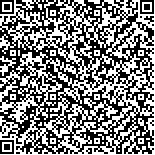| Click: 13072 Download: 18513 |

|
| Protection Challenges and Solutions for AC Systems with Renewable Energy Sources: a Review |
| Zhe Yang, Member, IEEE,Hongyi Wang, Student Member, IEEE,Wenlong Liao, Member, IEEE,Claus Leth Bak, Senior Member, IEEE,Zhe Chen, Fellow, IEEE |
|
|
|
| Abstract: |
| Numerous renewable energy sources (RESs) are coupled with the power grid through power electronics to advance low-carbon objectives. These RESs predominantly connect to the AC collection network via inverters, with the electricity they produce either transmitted over long distances through high-voltage lines or utilized locally within the distribution system. The unique interfacing of RESs alters their fault response characteristics, typically resulting in limited fault currents, frequency deviations, and fluctuating sequence impedance angles. Therefore, existing protection principles based on fault signatures of synchronous generators will face significant challenges including distance relays, directional elements, differential relays, phase selectors, and overcurrent relays. To solve these issues, innovative protection technologies have been developed to bolster grid stability and security. Furthermore, the superior controllability of power converters presents an opportunity to devise effective control strategies that can adapt existing protection mechanisms to function correctly in this new energy landscape. Nevertheless, the complexity of fault behaviors exhibited by RESs necessitates further refinement of these schemes. Therefore, this paper aims to consolidate current research methodologies and explore prospective avenues for future investigation. |
| Key words: Fault response characteristics, protection principles, renewable energy sources. |
| DOI:10.23919/PCMP.2023.000279 |
|
| Fund:This work is carried out with the European Union’s Horizon Research and Innovation Programme under Marie Sk?odowska-Curie Grant Agreement (No.101145934) and UKRI Postdoctoral Fellowships Guarantee (No. EP/Z002168/1). |
|